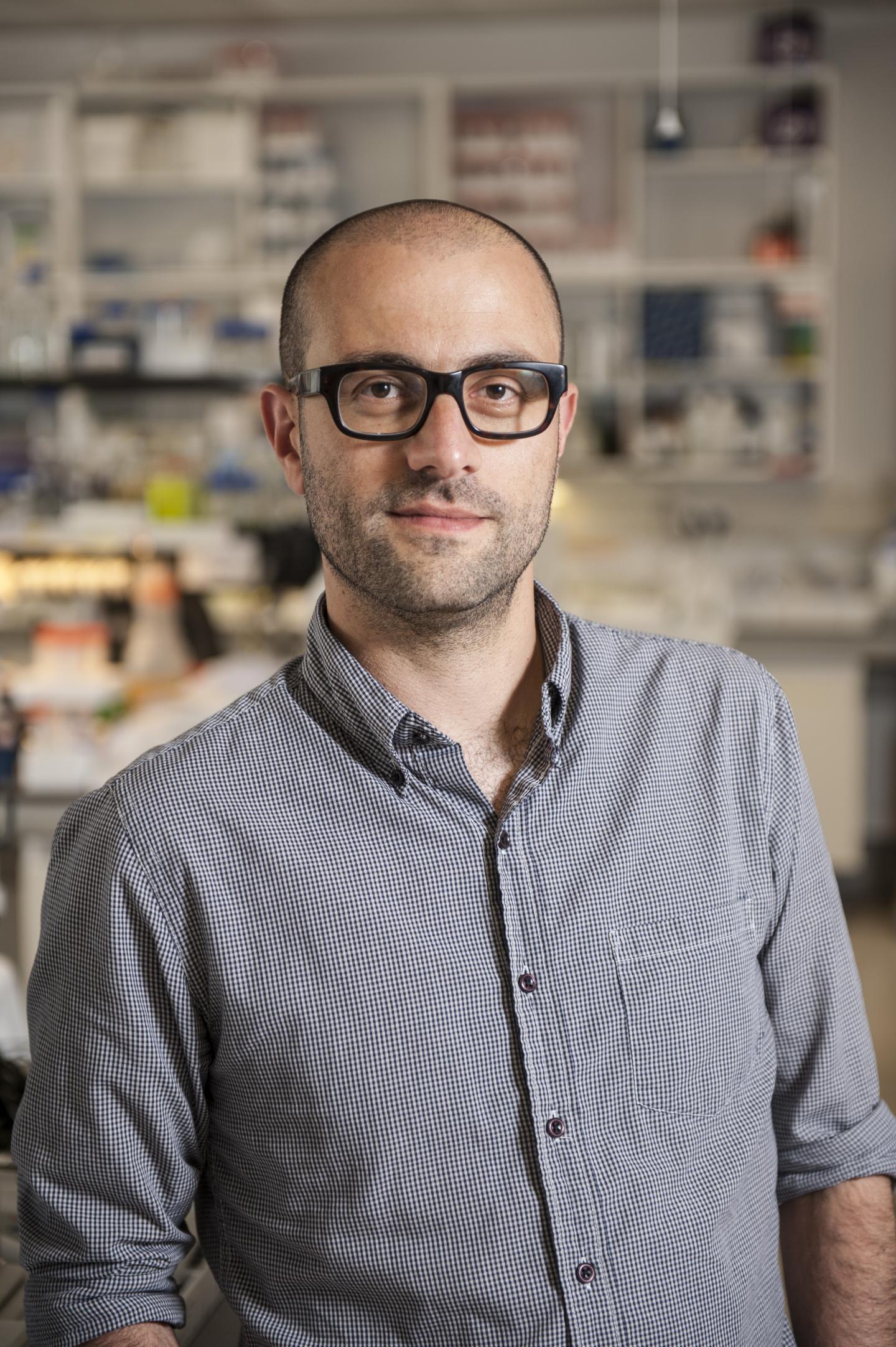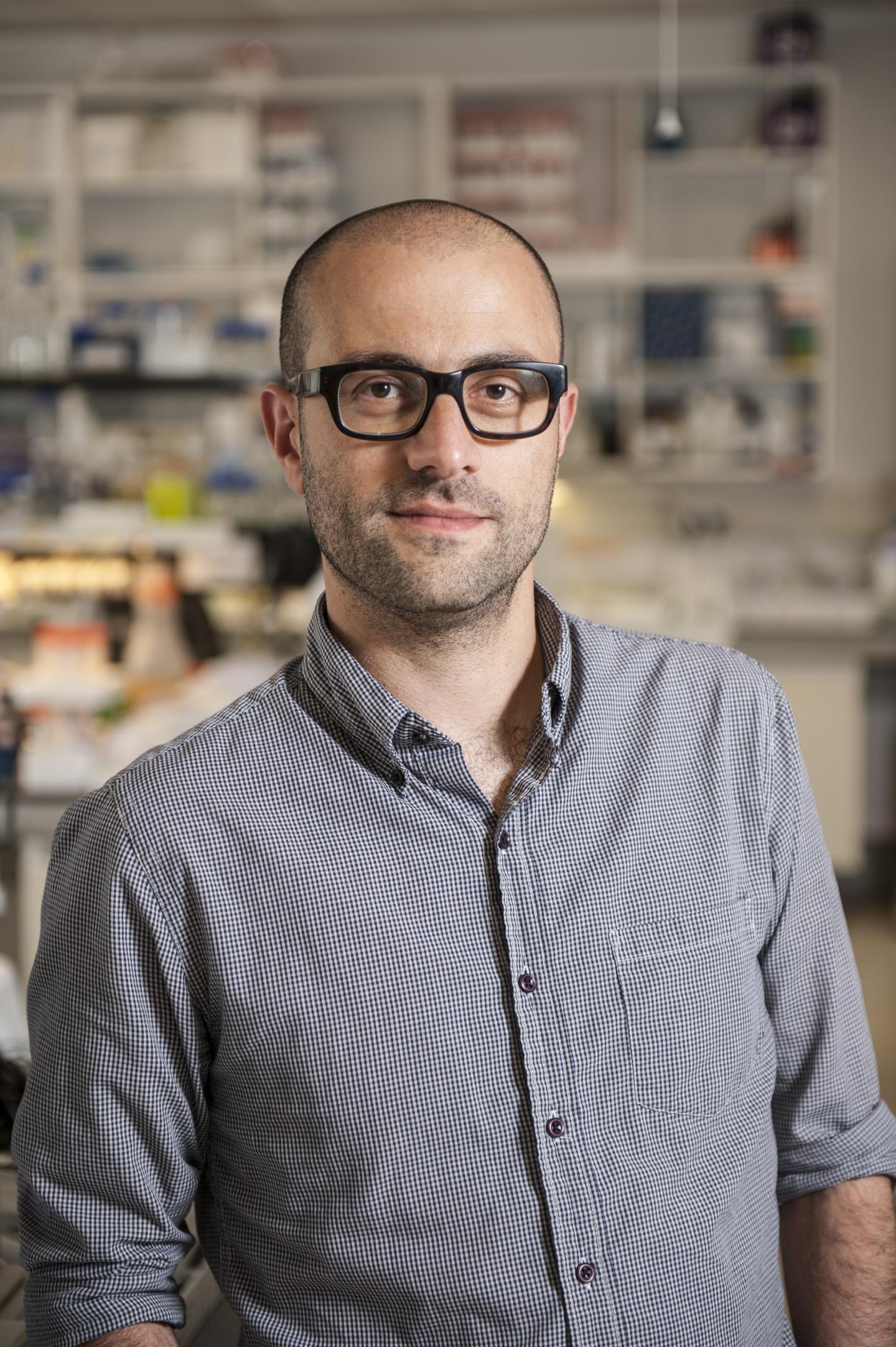
Credit: The Sainsbury Laboratory
Together with collaborators in Austria, scientists at The Sainsbury Laboratory (TSL) in Norwich (UK) are unravelling the complex mechanisms underlying plants' innate abilities to resist pests and pathogens. In a new paper published in Science, the team reveals how a class of endogenous plant peptides and their corresponding receptor regulate plant immune responses.
Plants possess an incredible capacity to fight off pests and pathogens. Research in Professor Cyril Zipfel's laboratory at TSL seeks to understand the molecular mechanisms underlying innate plant immunity so that we might learn how to exploit and improve plant immunity in our cropping systems.
One way in which plants can defend themselves against disease is by using receptor proteins at the cell surface that detect specific conserved patterns from microbial invaders. FLS2 and EFR are two such well-studied receptors that recognise important bacterial proteins to induce immunity; a step that requires the recruitment of co-receptor proteins.
Together with Dr. Youssef Belkhadir's group at the Gregor Mendel Institute (GMI) in Vienna (Austria), Professor Zipfel and his team describe a novel mechanism that regulates the formation of these active immune receptor complexes, and thus controls the appropriate initiation of plant immune responses.
Dr Martin Stegmann, first author of the study, said: "We identified that a receptor called FERONIA regulates the formation of a protein complex between FLS2, EFR and their co-receptor BAK1. This FERONIA-mediated regulation depends on the perception of distinct endogenous plant peptides that can either positively or negatively influence plant immunity."
Importantly, as Professor Zipfel said: "As well as our new results linking FERONIA to the initiation of plant immune responses, this receptor was previously shown to regulate a multitude of plant growth and developmental processes. Thus, our study provides new, testable models to understand how this conserved receptor regulates many key aspects of the plant's life. In addition, other studies indicate that plant pathogens may hijack this mechanism to cause disease. Our findings could be used to increase crop yield and resistance to pathogens."
###
This research was funded by the Gatsby Charitable Foundation, the European Research Council, the Austrian Academy of Science through the Gregor Mendel Institute, the Deutsche Forschungsgemeinschaft (fellowship), the European Molecular Biology Organization, the United Kingdom Biotechnology and Biological Sciences Research Council (fellowships) and the Erasmus Mundus program.
Notes to editors
1. The paper 'The receptor kinase FER is a RALF-regulated scaffold controlling plant immune signaling' will be published in Science on Friday 20 January 2017.
2. Images to accompany the press release can be downloaded from: http://bit.ly/2iHEYqI
3. If you have any questions or would like to interview Professor Zipfel, please contact:
Geraldine Platten
Acting Head of External Relations, The Sainsbury Laboratory
E: [email protected]
4. About The Sainsbury Laboratory, Norwich
The Sainsbury Laboratory (TSL) is a world-leading research centre focusing on making fundamental discoveries about plants and how they interact with microbes. TSL not only provides fundamental biological insights into plant-pathogen interactions, but is also delivering novel, genomics-based, solutions which will significantly reduce losses from major diseases of food crops, especially in developing countries. TSL is an independent charitable company and receives strategic funding from the Gatsby Charitable Foundation with the balance coming from competitive grants and contracts from a range of public and private bodies, including the European Union (EU), Biotechnology and Biological Sciences Research Council (BBSRC) and commercial and charitable organisations http://www.tsl.ac.uk.
5. About the GMI
The Gregor Mendel Institute of Molecular Plant Biology (GMI) was founded by the Austrian Academy of Sciences (ÖAW) in 2000 to promote research excellence in molecular plant biology. The GMI is one of the most important centers worldwide for basic plant research. With over 100 employees from 25 countries, the GMI conducts research in basic plant biology, particularly in its molecular genetic aspects: from mechanisms of epigenetics, to chromosome biology, developmental biology, stress resistance, plant pathogens and population genetics. The GMI is located in a state-of-the-art laboratory building of the ÖAW in the Vienna Biocenter, a complex including many other leading research institutes and biotech companies.
Contact
J. Matthew Watson
Head of Science Support
Dr. Bohr-Gasse 3
1030 Wien
+43 1 79044 9101
[email protected]
Media Contact
Geraldine Platten
[email protected]
01-603-450-238
@johninnescentre
http://www.jic.ac.uk
############
Story Source: Materials provided by Scienmag





